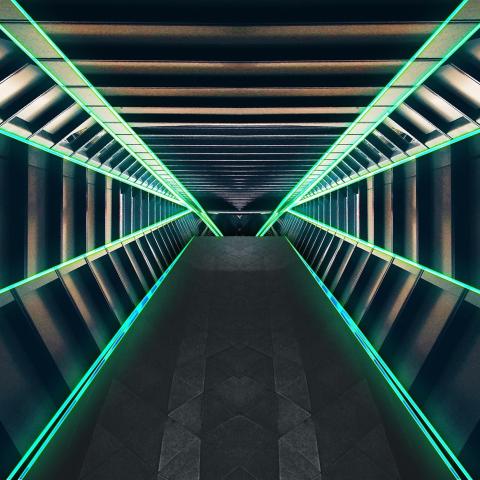
Animation and virtual production are entering a new era of unprecedented creativity and technological innovation. The fusion of virtual production, alongside traditional 2D/3D animation, art, visual effects (VFX) and technical practices, is propelling these industries into uncharted territory.
Future research in this area promises more immersive, interactive, and inclusive experiences that will captivate and inspire audiences in ways previously unimagined. As we journey forward, the intersection of technology and creativity in animation and virtual production holds immense potential to shape how we perceive and engage with animated content and VFX.
Our research encompasses a diverse group of professionals with a wealth of practical industry experience. Ranging from experts in industry-level photorealism to pioneers in experimental endeavours, our work reflects a commitment to both proven methodologies and innovative exploration.
At the heart of our research is the crucial interplay between industry and academia. We've actively nurtured these connections to create relationships that propels our research. Our dedication to bridging these two realms empowers us to combine practical insights from industry professionals with cutting-edge academic developments, fostering innovation and excellence in our work.
Our research topics
- Virtual production
- CGI animation, VFX
- Animated and CGI art house cinema
- Otherness in CGI and animation
- Narrative design in CGI and animation
Our work
When the Tides Went Down - A short film by Jordan Buckner
- Film TV Premiere BBC 4 - Get Animated!
- Official Selection London International Film Festival 2021
- Official Selection Linoleum Film Festival Ukraine
- Official Selection Margate Film Festival
- Official Selection Bergen International Animation Festival
- Artwork Selected for Turner Contemporary Summer Exhibition 2021
Our practice-based/research has been featured in many outlets, including:
- Animated film "//_sleeper" - selected for the Pictoplasma Conference in Berlin 2023. The film was shown as part of the 'Conference Screening: Program 3 - Psychedelic Midnight Mix' on Friday, 16 September 2022. Jordan Buckner
- eXRe – The Victorious Project - Pre-Visualistion project, via a PC or VR, projecting an animation on the wall of a 3D model of Southsea Castle. Several of the animation team contributed to the project including Niki Wakefield, Academic lead and compositor (Notch), Jordan Bucker, art director, Cliff Phillips, photogrammetry and LiDar, Mat Garey, lead animator and Jessica Rayner-Tickner, 3D artist.
- Electric Eric - A procedurally-generated dungeon-based FPS developed by staff from the Computer Games Technology, Computer Games Production, and Music Technology courses during the University of Portsmouth Game Jam 2022 - Colin West
- UN Documentary - vfx clean up shot – removed distracting glasses reflection during a Presidential speech for UN documentary (16th meeting, in parallel) High-level Political Forum 2023 (July, 2023)
Conferences and presentations
- An Investigation of Virtual Production Pipelines in the Development of a Mixed Media Animation Experience - eXtending Reality: Immersive Design, Production and Technology - Sept 2023 - Jordan Buckner and Niki Wakefield
- Unbuilding Animated Spaces // An Investigation of Mixed-Media Animation Aesthetics in the Virtual Production Environment - CCI Research and Innovation Conference 2024 - Jordan Buckner and Niki Wakefield
- What We Learnt from the End Times - Encouraging Creative Pedagogy in a Post-Pandemic World - CCI Teaching and Learning Conference - December 2022 - Jordan Buckner
Recent projects
-
Stina and the Wolf - Feature film
‘Stina and the Wolf’ is a feature length CGI film created in collaboration with staff, students and alumni. The project utilizes modern production techniques to emulate the current industry workflows and pipelines. These range from established filmmaking techniques, such as extensive production design and storyboarding, through to the latest techniques in pre-viz, performance capture and animation. In combination with this, we are using state of the art VFX, rendering and compositing techniques to ensure that the quality is kept at a level that gives the students a realistic experience of industry.
-
Do facial expressions impact navigational decisions?
We need to better understand how attention towards the facial expression of people we encounter during navigation affects our decisions. We predict that facial expressions generally increase social attention (which can be either distracting or helpful). Importantly, we predict that the valence of the facial expression (neutral, positive or negative) affects performance whereby a positive facial expression will facilitate navigation and negative facial expression will impair navigation.
Discover our areas of expertise
Animation and virtual production is one of our areas of expertise in the Digital and Creative Technologies research area. Explore the others here.
Computer games design and technology
We're examining the theory, psychology and development of video games and contributing to the design, development and release of games.

Experience design
We're investigating the impact and application of experience design and digital technology in the cultural and heritage sectors to improve visitor experiences and conserve cultural and historical sites.

Music
We're investigating music and sound and creating new tools to enhance performance and creativity.

Research groups
Advanced Games Research Group
Our research feeds into the design, development, and release of commercial and free games. Explore our advanced games research group.

Interested in a PhD in Digital and Creative Technologies?
Browse our postgraduate research degrees – including PhDs and MPhils – at our Digital and Creative Technologies postgraduate research degrees page.


